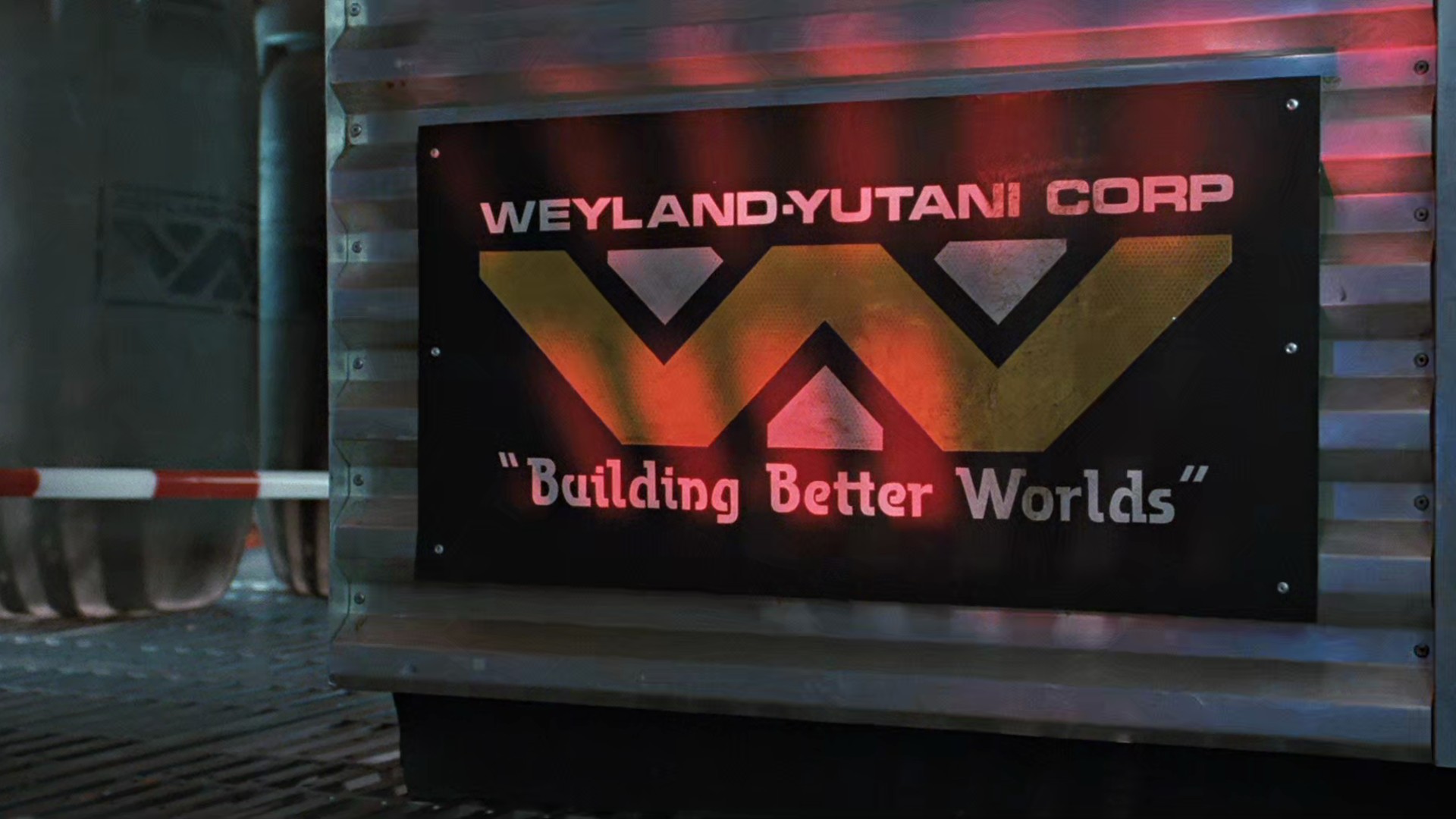
In the vast sphere of multinational global conglomerates operating with honesty, trust and transparency, the Weyland-Yutani Corporation of the "Alien" franchise would rank at the absolute slimy bottom. This fictional megalomaniacal enterprise had its greedy tentacles into everything from robotics, biotechnology, cybernetics, AI, and interstellar mining, to terraforming, off-world colonization, medical research and developing weapons using extraterrestrial DNA gathered around the galaxy.
But what are the ambitious beginnings of this notorious San Francisco-based company, how have its personnel, facilities, spaceships and machines been integrated into the "Alien" universe and who are the human monsters behind the murky dealings of Weyland-Yutani? Building Better Worlds might be its altruistic marketing slogan but we all know the secret horrors of its corrupt agenda.
Since we first heard of this cutthroat operation back in 1979 as "Weylan-Yutani" without the “d” with the release of director Ridley Scott's "Alien," Weyland-Yutani (Wey-Yu) has loomed like a gargoyle over everything related to the acquisition of alien specimens across the commerce routes of known spaceways and deep space expeditions to uncover hidden truths that can be exploited and monetized.
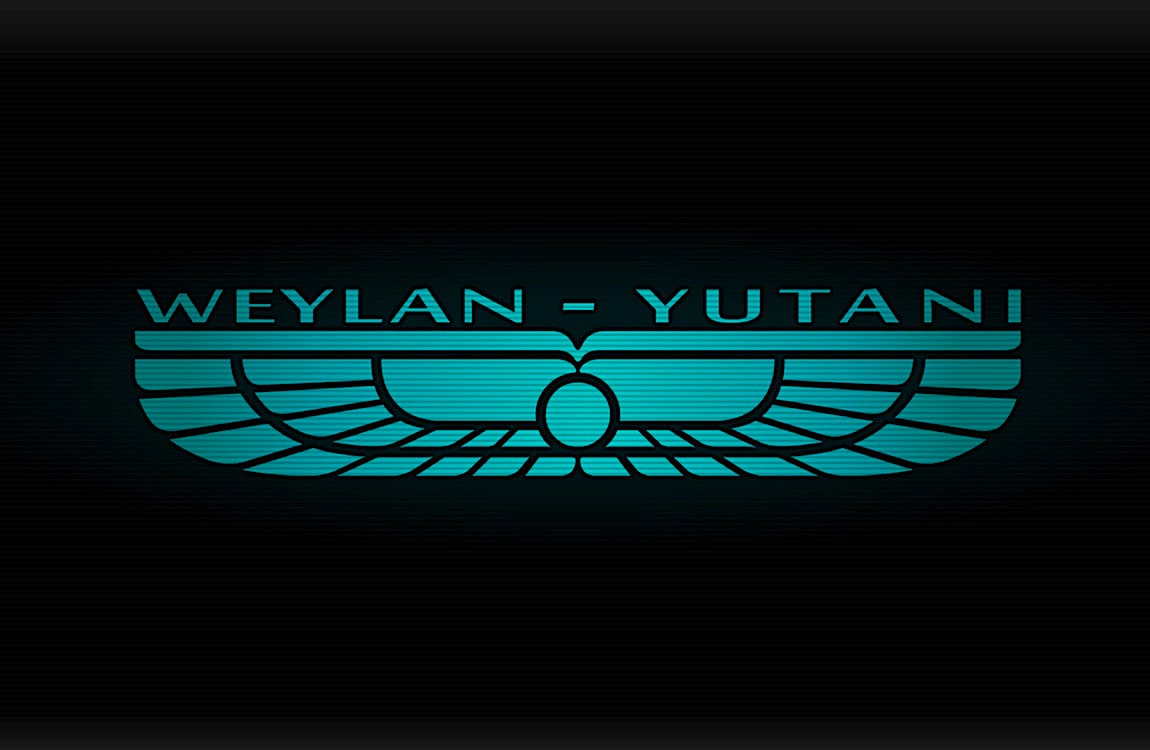
In that first film, it was revealed that an executive decision was made for the crew of Wey-Yu's commercial towing freighter, Nostromo, to investigate a supposed SOS signal on the planetoid LV-426 to retrieve whatever extraterrestrial creature might be crawling around on that hostile rock supporting no indigenous lifeforms.
As Ripley (Sigourney Weaver) discovers at the end of the film, the science officer Ash was a replicant put aboard by "The Company" to ensure safe passage of any alien, with the crew being expendable. Fans of the cinematic series know that those conniving folks at the Weyland-Yutani Corporation had already known about about extraterrestrial beings in that dark corner of the galaxy as seen in "Prometheus" and "Alien: Covenant" and wanted a specimen for their bio-weapons division.
If you're looking for an apt poster child that exemplifies every negative quality of Weyland-Yutani, look no further than that lying corporate weasel named Carter Burke (Paul Reiser) in "Aliens," who met with a well-deserved grisly death.
According to established canon, it all began with India-born genius inventor and young entrepreneur Peter Weyland, who incorporates all his brilliant enterprises under one roof on Oct. 11, 2012. Shortly after they go public with a laundry list of medical and industrial patents, Weyland Industries begins dabbling in new ventures like nanotechnology, FTL travel, automated atmospheric processors, fatal disease cures, and an advanced line of synthetic human beings.
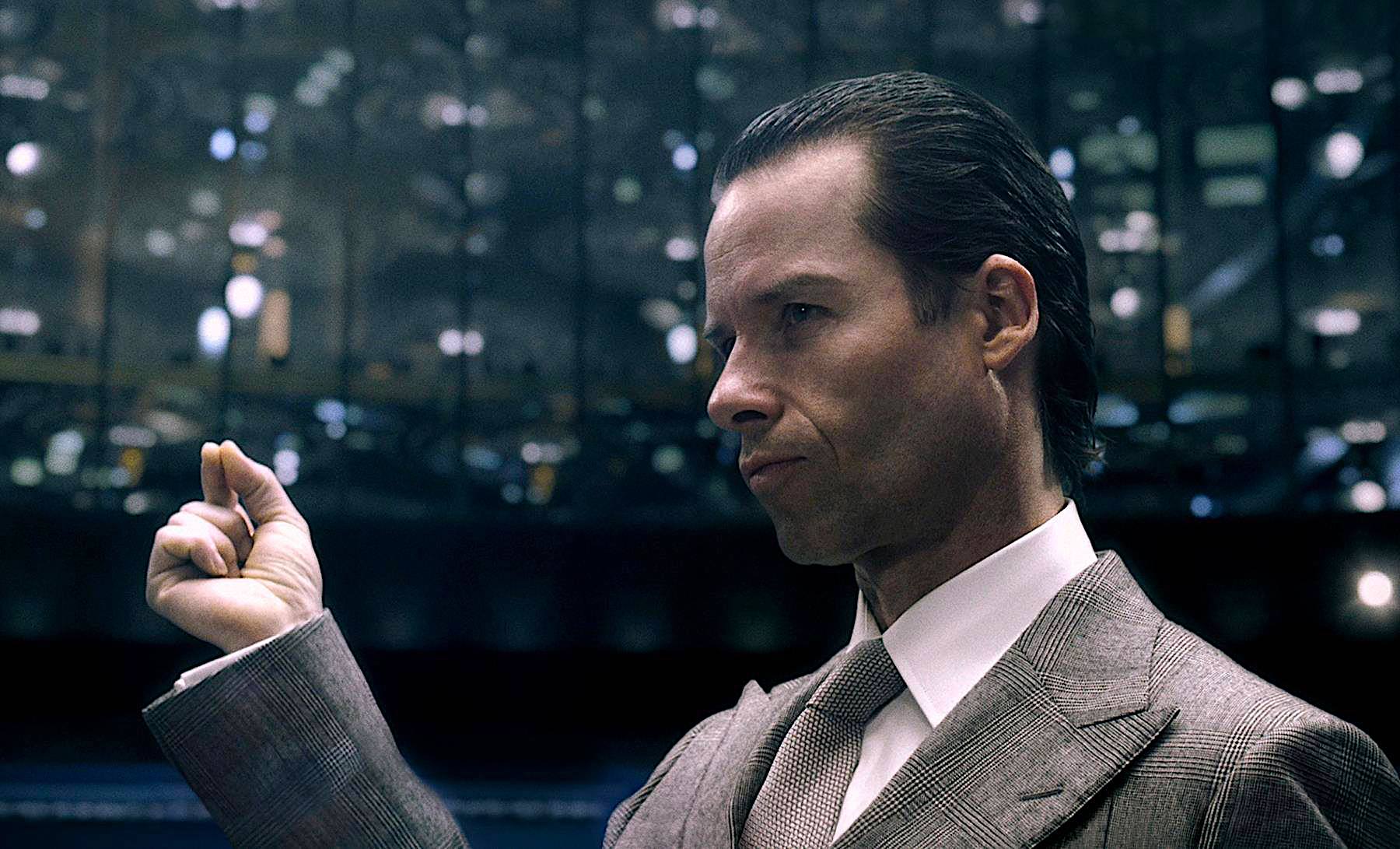
In 2029, Weyland battles a Japanese startup called the Yutani Corporation in court and eventually wins a patent lawsuit concerning their "David" android prototype. After inventing effective hypersleep chambers in 2030 that allow for deep space missions, Weyland Industries and its calculating founder make more shrewd moves by acquiring a number of defense and aerospace firms to bolster their portfolio. In 2032 they successfully crack the code on faster-than-light travel, leading to the launch of its first FTL test spacecraft in 2034.
Over the next three decades, the powerful corporation scores patents on industrial power loaders, ejectable life pods, automated surgical stations, anti-gravity devices, and 3D mapping tools. By 2072, Weyland has been carved up into several divisions: health, transformation, terraforming, cybernetics, energy, and security.
With all its eggs in one overarching basket, Peter Weyland's Project Prometheus comes into focus after a group of scientists stumbles upon celestial cave paintings in 2089 that they deduce is an invitation to seek out an Engineer race that nudged the biological development of humans. The driven founder is dealing with a fatal disease and is obsessed with locating Creator worlds after learning of a deep space signal.
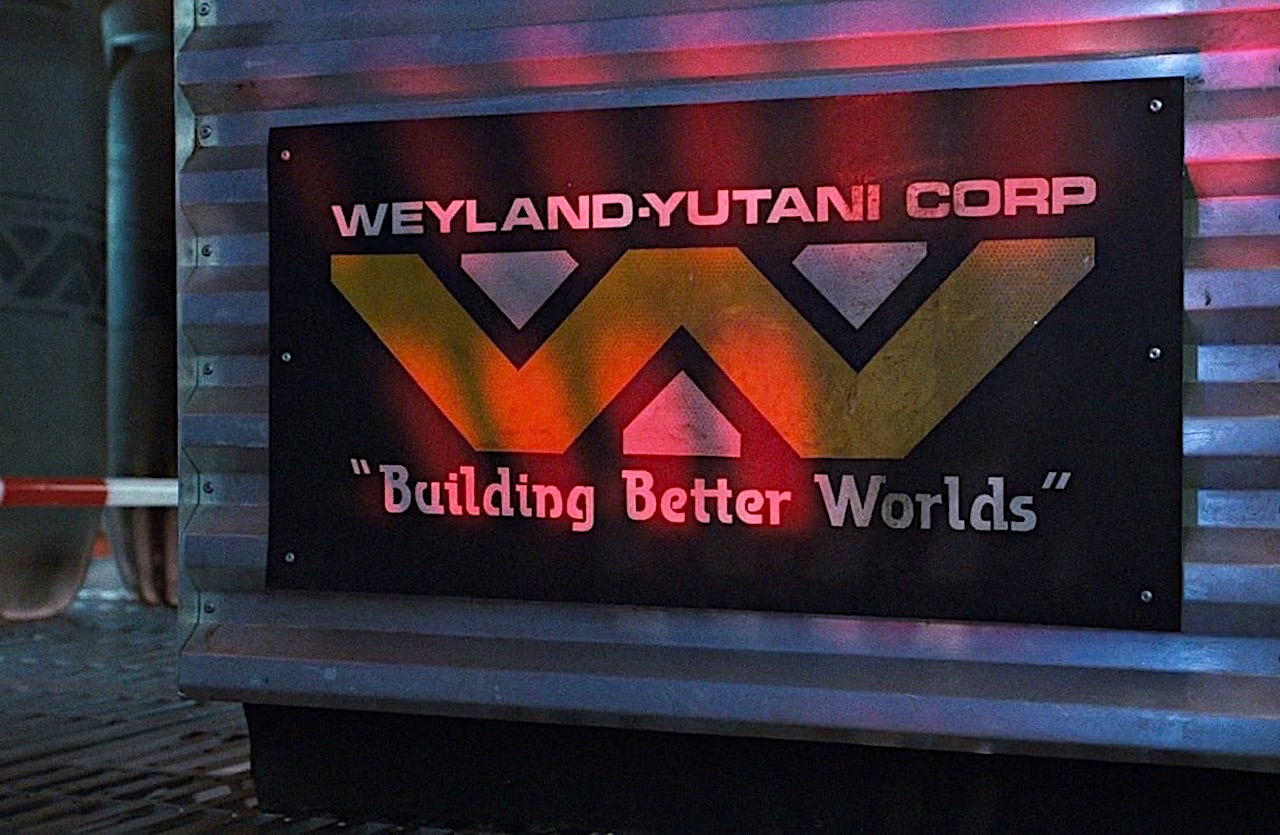
Weyland bankrolls the Prometheus mission to Zeta II Reticuli and the doomed expedition arrives at LV-223 in 2093, three decades before the events of "Alien." The 103-year-old trillionaire secretly stows away aboard the vessel yet ironically gets his life cut short at the hands a tall pale alien he’d hope to obtain longevity secrets from.
In the wake of Peter Weyland's death at the hands of an angry Engineer, the Yutani Corporation snatched up the assets of the Weyland Corporation and created the merged Weyland-Yutani Corporation in 2099 that we all love to hate. This British-Japanese conglomerate worth over $200 trillion then continues its exploration of the galaxy using all its considerable financial, political and technological might, including the funding of the fateful Covenant colony mission to the planet Origae-6 in 2104.
Over the course of a half-dozen feature films, Weyland-Yutani acts as the overlord and main orchestrator of questionable space excursions that persist in trying to tamper with and collect off-world specimens, and this week's release of director Fede Alvarez's "Alien: Romulus" will be no different. Wey-Yu owned the Nostromo, they were landlords of the Hadley's Hope colony on LV-426 in "Aliens," hired the Colonial Marines, operated the lead-smelting factory and penitentiary of Fiorina "Fury" 161 in "Alien 3," and even partnered with United Systems Military who took over The Company's radical research aboard the USM Auriga in "Alien: Resurrection."
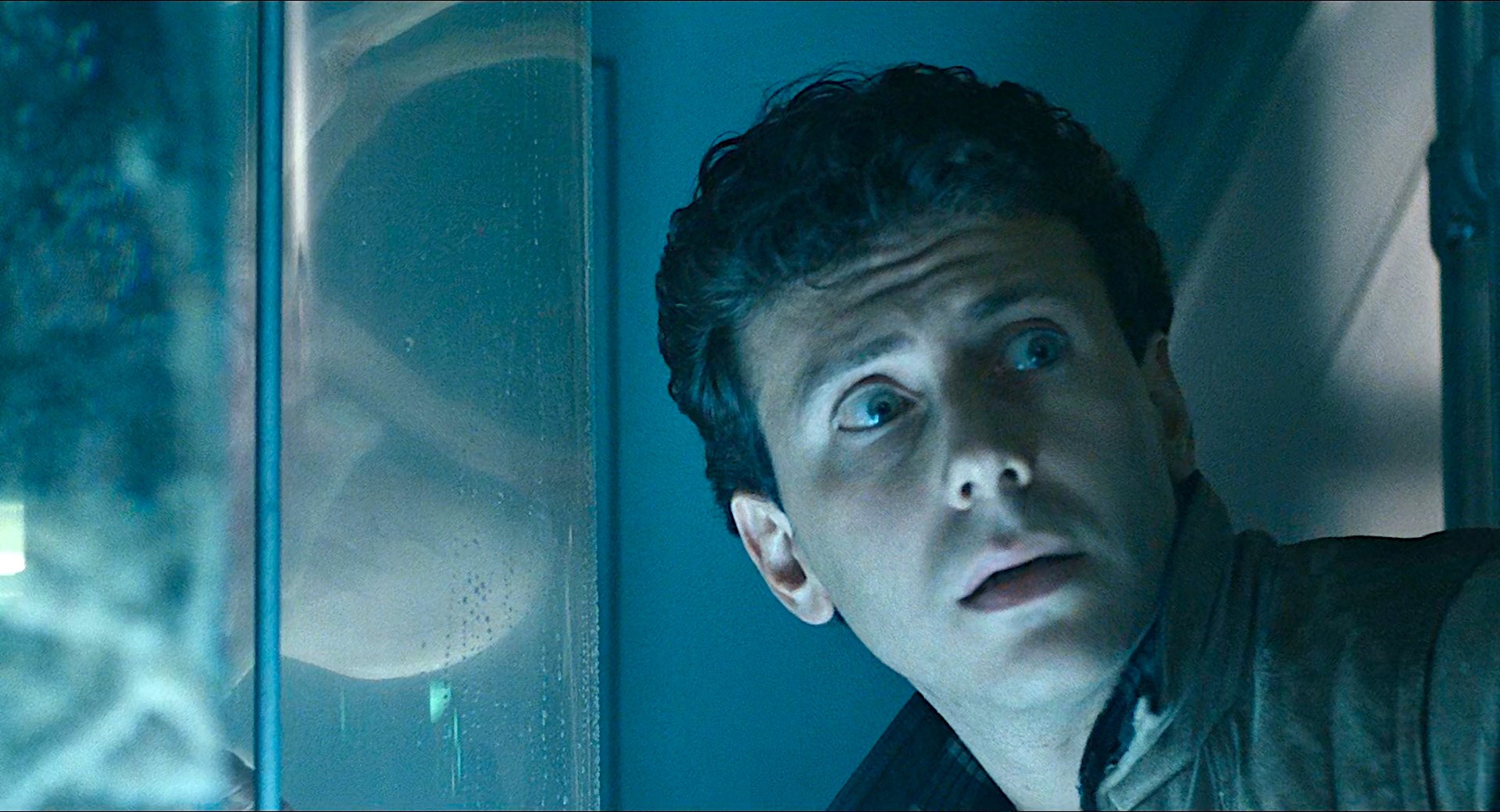
The abandoned Renaissance space station and its pair of modules, Remus and Romulus, in director Alvarez’s sequel set in that 57-year gap between 1979's "Alien" and 1986's "Aliens," is no doubt a Weyland-Yutani property and they're somehow up to no good in their endless enterprise of ruthless profiteering regardless of the cost.
Eventually, after more than 300 years of dark deeds, Wey-Yu was finally disbanded when omnipotent megacorporations were outlawed and this unethical monstrosity was put to rest in 2352. But its inextricable entanglement in "Alien's" world remains.
In summation, the main antagonist in the "Alien" universe is not those molecular acid-spewing nightmares, but the Weyland-Yutani Corporation themselves, billed as the largest company in the universe. Their destructive machinations appear anywhere there's money to be made and lives to exploit. Whenever and wherever there are xenomorphs, the spider-like web of Weyland-Yutani and its vile treachery seem to always be near in a strange symbiotic relationship that could be revealed further in "Alien: Romulus." Building Better Worlds? Perhaps, but for whom exactly?
See the sordid history of the Weyland-Yutani corporation for yourself with our guide to watching the Alien movies online.







